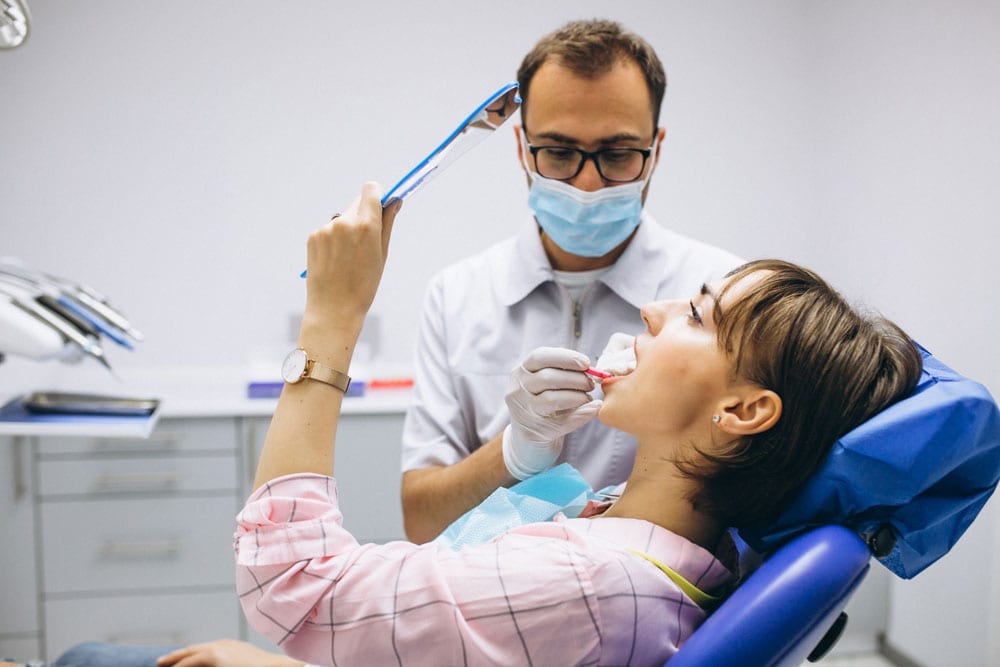On the topic of Dental Caregiving: If you have an aging parent, disabled child, friend, or spouse who is unable to maintain oral care on their own, you may need to help them keep their mouth clean and/or remind them to brush and floss daily. Depending on their level of ability you may need to do this for them, or provide instruction to their care team. There is so much to be done, and all of this can become quite challenging, even for the most capable caregiver.
Simple tasks such as brushing and flossing need to be adapted for those who are not able to do for themselves. Here are a few things to consider
Dentures
For those who wear dentures, caregivers should be aware if the loved one is having trouble eating. Often dental issues are the cause, and can the dentures can be adjusted to provide a better fit and allow easier eating and chewing.
Immobility Issues
If you are caring for someone immobile or confined to bed, there are many issues to manage. However, it is important to maintain oral health to avoid bacteria from the mouth causing inhalation and possible pneumonia or other dental issues. Ask your dentist for some tips on how to maintain oral health for people in prone positions. Dental sponges are also available online to help gently swab the mouth with an oral rinse.
Transportation
You may also need to make and provide transportation and support during regular dental visits. Please let the office know if there is any circumstance we need to be aware of, or if we can help accommodate.
Scheduling and Prioritization
Caregivers often are balancing a long list of both critical and mundane tasks for their loved ones. Dental care, while extremely important, can get de-prioritized. We recommended you set alarm reminders on your phone for morning and night for dental care at home and bundling dental care with other activities (i.e. bathing time, or dressing time), so that the routine is maintained.
Help and Support
There is help and support available for caregivers. If you are caring for an aging adult, check out the American Association on Aging, and if you are caring for a disabled loved one, please look at the Center for Disease Control and Prevention.
You First
On an airplane, you are instructed that in case of emergency, you should put your oxygen mask on first. The reason being you can’t help others in need unless you have what you need first. This is especially true for caregivers who dedicate their days and often nights to manage the care of a loved one. Remember that you need to take time for yourself, eat a balanced diet, get exercise, and of course, maintain a regular health dental care routine to be at your best.




